Staying safe while abroad should be one of your major priorities. This section will outline potential threats you may face while abroad and how to handle them.
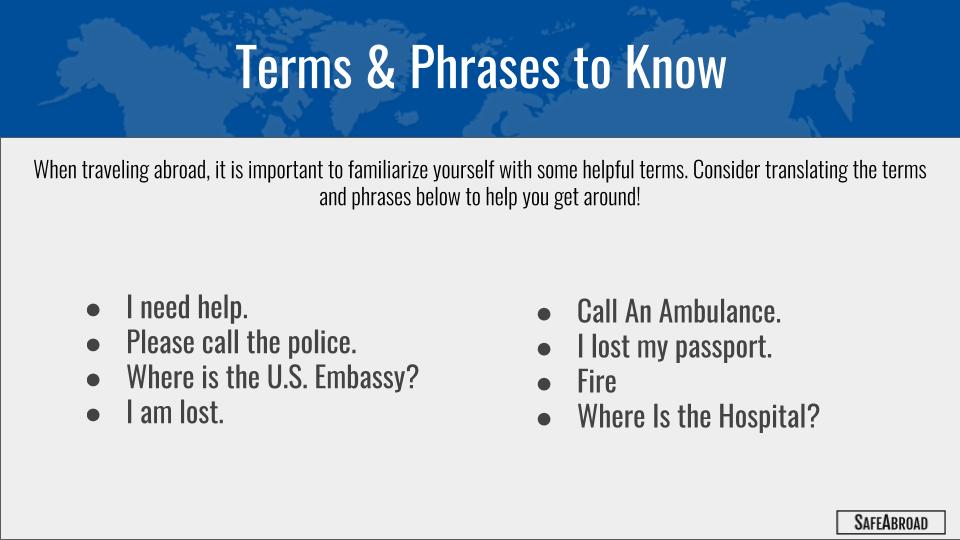
While abroad, you may come across some crime. Here are some things to look out for and avoid.
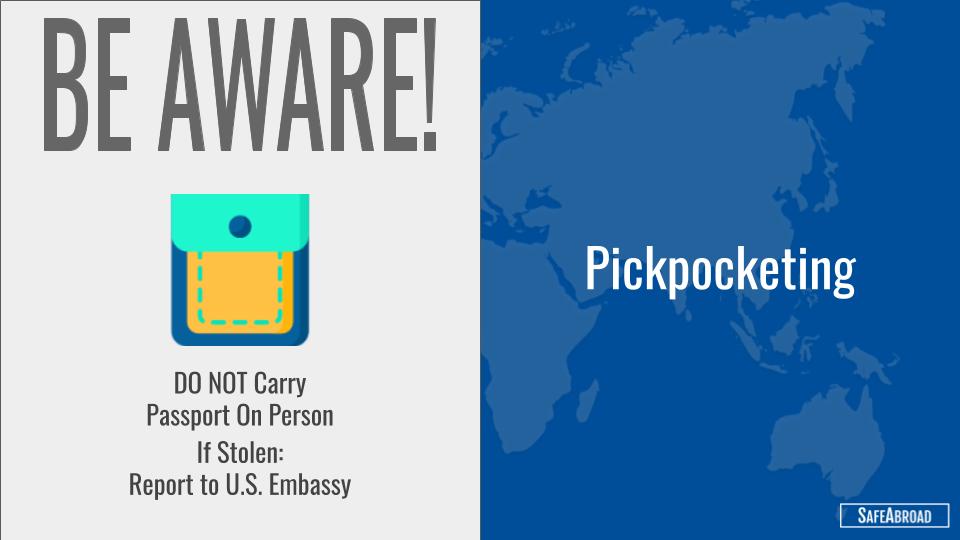
While you are in major tourist areas, you may witness or experience pickpocketing. Pickpockets have different ruses to grab your belongings, these include: bumping into you, slicing the strap on a bag you are carrying so it can be easily taken and distracting you while another pickpocket takes your belongings.
To avoid this, do not carry your passport on your person, stay in groups, keep bags in front of you, or keep any items you are carrying on your person. If your passport is stolen, report it to the U.S. Embassy. If any of your credit or debit cards are stolen, report it to your bank and cancel or freeze your accounts.
Reach out to your program leader if you experience pickpocketing.
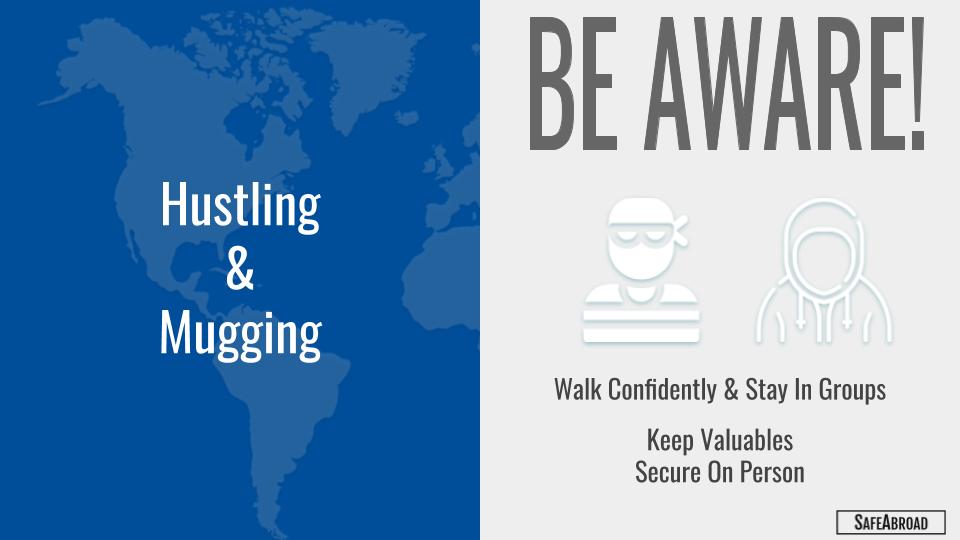
Although hustling and mugging are less common than pickpocketing, it is important to know what to do in the situation. Like pickpocketing, make sure you are aware of your belongings and that they are secure.
Muggers usually look for wealthy-looking tourists who are clearly carrying money and valuables. They target individuals that look like they won’t fight back. To avoid being mugged, avoid dimly lit or empty areas, stay in groups, walk confidently and assertively, and if confronted by a mugger, give them what they want and throw it far away from yourself, distract them if possible, or make loud noises to attract the attention of others.
Hustlers usually target tourists that appear to be an easy target. They may lure you in to steal your belongings with elaborate schemes. A common way they do this is by pretending to be a tourist and asking you to take a photo for them, in the hopes that you will either place your bag down or they can have another hustler take your items off you. Hustlers also commonly take phones and wallets off the table while you are eating. If you are carrying a bag with you to a restaurant be sure to have it wrapped around yourself or in your lap. It is important to note that pickpocketing is a crime that happens very fast without you noticing. Hustling is more of an elaborate plan that you are lured into.
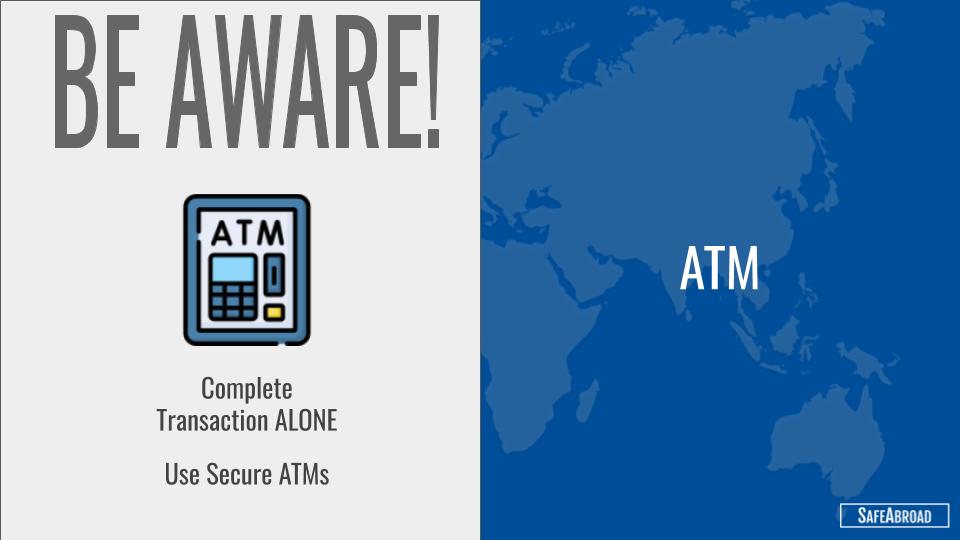
To avoid ATM scams, use secure ATM’s that are linked to a bank. Thieves may distract you while you use an ATM, so another one can take your cash when it dispenses.
Also, be aware that criminals may insert a magnetic strip or scammer into the ATM to duplicate your bank information. To avoid these scams, avoid dimly lit ATM’s, if you become distracted, cancel the transaction, and if cash is not dispensed contact your bank.
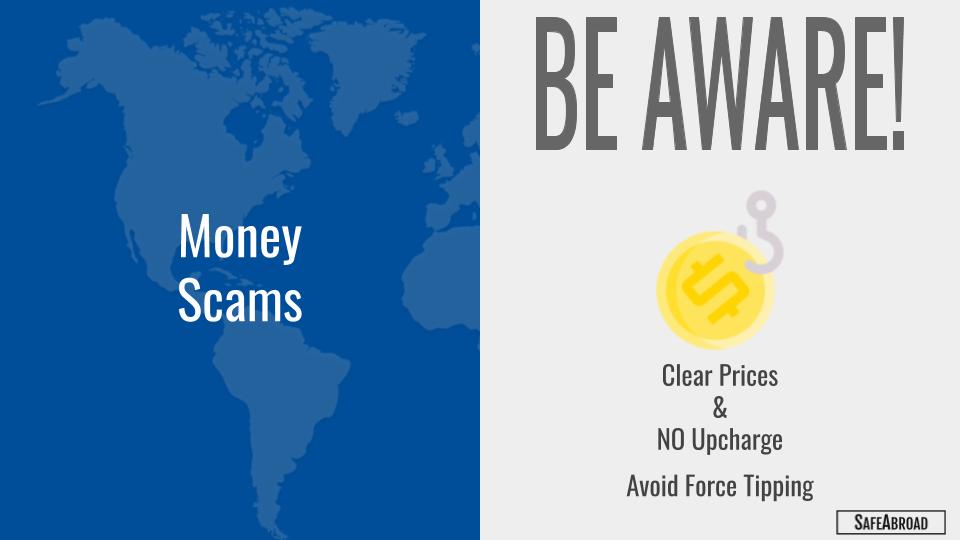
Make sure prices are clear and ask if they are not. Forced tipping is also a common money scam, where individuals will help you with luggage or a task without your permission and demand to be tipped afterwards.


